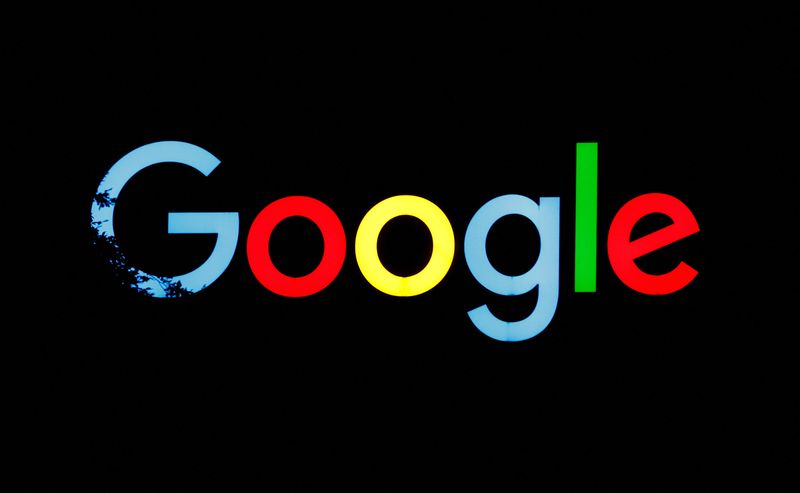By Diane Bartz
WASHINGTON (Reuters) -The Justice Department sought on Wednesday to show how Google did all it could to get people to use its search engine and build itself into a $1 trillion search and advertising giant on the second day of a once-in-a-generation antitrust trial.
First out of the gate, the government questioned a former Google executive, Chris Barton, about billion-dollar deals with mobile carriers and others that helped make Google the default search engine.
Barton, who was at Google from 2004 to 2011, said the number of Google executives working to win default status with mobile carriers grew dramatically when he was with the company, recognizing the potential growth of handheld devices and early versions of smartphones.
Google's clout in search, the government argues, has helped Google build monopolies in some aspects of online search advertising. Search is free so Google makes money through advertising.
The government says the Alphabet (NASDAQ:GOOGL) Inc unit paid $10 billion annually to wireless companies like AT&T (NYSE:T), device makers like Apple (NASDAQ:AAPL) and browser makers like Mozilla to fend off rivals and keep its search engine market share near 90%.
In revenue-sharing deals with mobile carriers and Android smartphone makers, Google pressed for its search to be the default and exclusive. If Microsoft (NASDAQ:MSFT)'s search engine Bing was the default on an Android phone, Barton said, then users would have a "difficult time finding or changing to Google."
Barton said on his LinkedIn profile that he was responsible for leading Google's partnerships with mobile carriers like Verizon (NYSE:VZ) and AT&T, estimating that the deals "drive hundreds of millions in revenue."
The government also called Antonio Rangel, who teaches neuroscience and behavioral biology at the California Institute of Technology, to discuss the powerful effect that defaults have on how consumers behave.
Rangel told the court he found that search engine defaults create a "sizable and robust" bias toward the default, whether it was Google or Microsoft's Bing, and that its effect was stronger in mobile devices than with personal computers.
"The consensus is that defaults have a powerful impact on consumer decisions," he said.
Google found this out the hard way, he said, when it put a default spending amount into software for low-budget companies buying advertising. Those who spent less than the default began to spend more but companies which had spent more than the default reduced their expenditures. The software was changed, he said.
Hal Varian, Google's chief economist, told the court that scale, or the number of search queries Google received, was important, but pushed back during questioning on how important.
He also acknowledged giving a speech in which he said certain search queries, for instance for a tennis racquet, were important in effectively advertising to the person who made the query and to subsequent ad revenues.
The government has also alleged that Google had illegally taken steps to protect communications about the payments it made to companies like Apple.
Google attorney John Schmidtlein said in opening arguments on Tuesday that the government was wrong to say that Google broke the law to hold onto its massive market share, suggesting that its search engine was wildly popular because of its quality and that the payments were fair compensation for partners.
The fight has major implications for Big Tech, which has been accused of buying or strangling small rivals but has defended itself by emphasizing that its services are free, as in the case of Google, or inexpensive, as in the case of Amazon.com (NASDAQ:AMZN).
Previous major antitrust trials include Microsoft, filed in 1998, and AT&T, filed in 1974. The AT&T breakup in 1982 is credited with paving the way for the modern cell phone industry, while the fight with Microsoft is credited with opening space for Google and others on the internet.

If Google is found to have broken the law, U.S. District Judge Amit Mehta, who is deciding the case, will then decide how best to resolve it. He may decide simply to order Google to stop practices he has found to be illegal or he may order Google to sell assets.
Throughout the trial, Mehta has occasionally broken into the questioning to ask a clarifying question about a term or other detail under discussion.